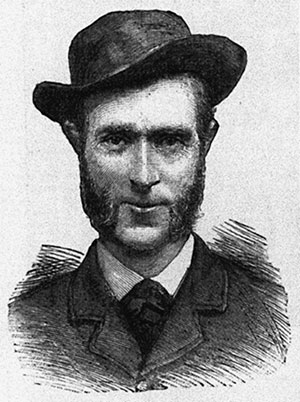By AODHÁN CREALY
NOVEMBER
21/1916
The luxury liner Britannic, serving as a hospital ship, sank off the Greek island of Kea after striking a mine.

02/1917
The Balfour Declaration—Arthur Balfour, foreign secretary in Lloyd George’s coalition government, proclaimed the support of the British government for a Jewish state in Palestine.
03/1917
Conor Cruise O’Brien, writer, historian, academic and politician, born in Dublin.
07/1917
Following an armed insurrection in Petrograd, the Bolsheviks under Vladimir Lenin seized power in Russia.
07/1867
Marie Curie, naturalised French physicist and chemist, born in Warsaw.
08/1987
Eleven people were killed and over 60 injured when an IRA bomb exploded during a service at the war memorial in Enniskillen, Co. Fermanagh, on Remembrance Day.
10/1917
The 3rd Battle of Ypres (Passchendaele), from 31 July, ended with British and Commonwealth and German casualties of c. 500,000.
11/1957
Five members of the IRA were killed when a landmine they were preparing exploded prematurely at Edentubber, Co. Louth.
13/1817
John Keogh (77), leader of the radical wing of the Catholic Committee in the 1790s, died.
17/1917
Auguste Rodin (77), French sculptor, notably of ‘The Kiss’ (1889) and ‘Le Penseur/The Thinker’ (1902), died.
20/1917
The Battle of Cambrai, Nord-Pas-de-Calais. In an operation that included the first mass tank attack in history, British forces liberated the town with the loss of 44,000 troops.
21/1767
Thomas Russell, United Irishman, known as ‘the man from God-knows-where’, born in Betsborough, Kilshanick, Co. Cork.
23/1867
William Phillip Allen, Michael Larkin and Michael O’Brien—the ‘Manchester Martyrs’—were executed in Salford Jail, Manchester, for the murder of a policeman (see 08/12).
25/1987
Canon James McDyer (76), who pioneered successful co-operative enterprises in Glencolmcille, Co. Donegal (1951–71), died.
28/1977
Following a strike (from 3 August) at the Ferenka steel cord factory in County Limerick, the plant was closed with the loss of 1,400 jobs.
30/1667
Jonathan Swift, poet and satirist, born at 7 Hoey’s Court, Dublin.
30/1967
Patrick Kavanagh (63), poet, died.
DECEMBER
17/1883

03/1967
South African surgeon Christiaan Barnard performed the world’s first heart transplant at the Groote Schuur Hospital, Cape Town.
05/1967
Michael P. O’Connor, writer and broadcaster, died.
06/1982
Sixteen people—including eleven British soldiers—were killed in an INLA attack on the Droppin’ Well public house in Ballykelly, Co. Derry.
06/1917
The French munitions ship Mont Blanc exploded in Halifax, Nova Scotia, in the most powerful man-made explosion before the nuclear age; 1,639 were killed and over 9,000 injured.
07/1817
William Keogh, Conservative and Independent Irish Party MP and judge who was a special commissioner at the trials of the Fenians (1865), born in Galway.
07/1817
William Bligh (63), Royal Navy officer and colonial administrator, best remembered for his role in the mutiny on the Bounty (1789), died.
07/1867
‘Song’ by T.D. O’Sullivan, which soon became known as ‘God Save Ireland’, the anthem of Irish nationalists until 1916, was published in The Nation.
08/1867
In Dublin, c. 60,000 attended ‘a public funeral procession’ in honour of the Manchester Martyrs.
12/1917
In the worst rail disaster in history, 543 French troops were killed when their train derailed near the entrance to the Mount Cenis tunnel in Modane, France.
13/1867
In an unsuccessful attempt to rescue Ricard O’Sullivan Burke from Clerkenwell detention centre, London, Fenians Captain John Murphy and Jeremiah Sullivan caused an explosion that killed twelve and injured 50.
15/1917
The Bolsheviks under Lenin signed an armistice with Germany and the other Central Powers.
17/1867
Henry Harrison, Irish Parliamentary Party MP and author, notably of Parnell vindicated (1931), born in Hollywood, Co. Down.
21/1917
Heinrich Boll, author of Irish journal (1957) and Nobel Laureate (1972), born in Cologne.
27/1997
Billy Wright (36), notorious leader of the Loyalist Volunteer Force, was assassinated in the Maze prison by the INLA.
29/1937
The Constitution of Ireland came into force.
